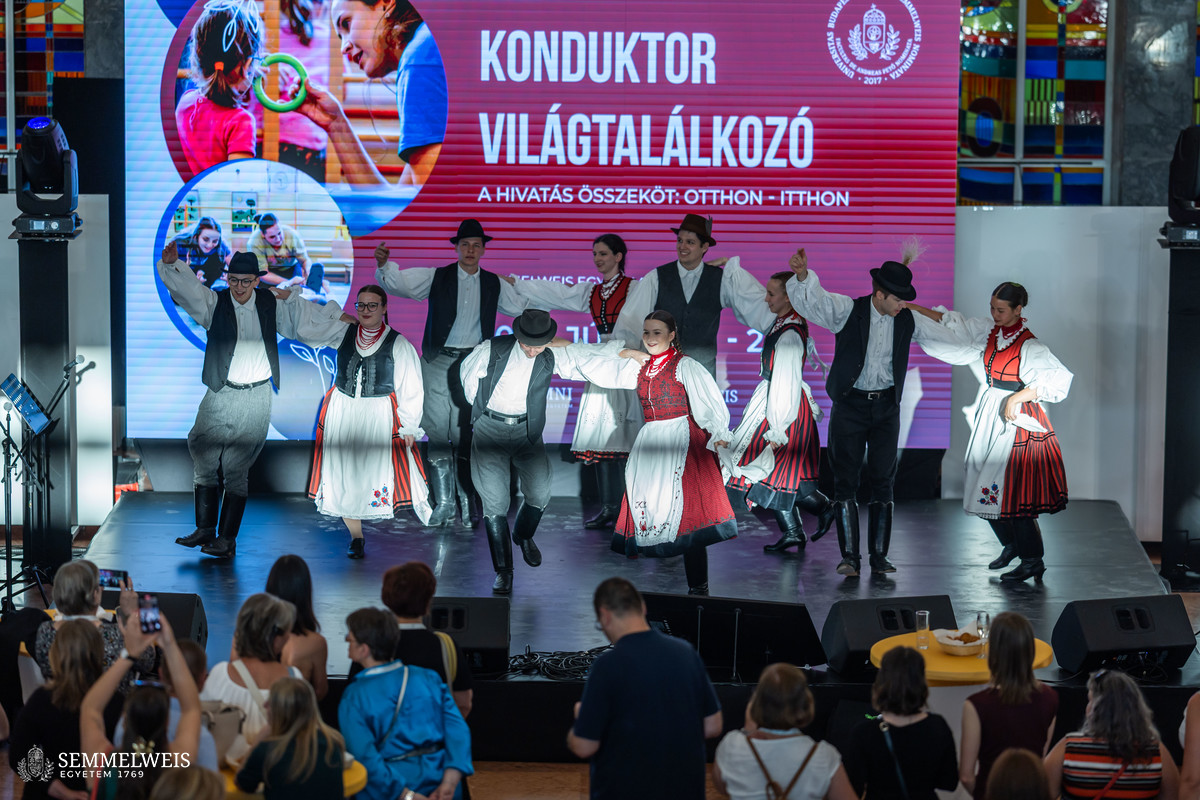
Semmelweis University Facilitates Global Networking for Conductive Educators
Semmelweis University in Hungary recently marked a historic milestone by hosting the inaugural international reunion of conductive educators. This event, held at the prestigious András Pető Faculty (PAK), brought together professionals and alumni from across the globe, celebrating over 60 years of pioneering conductive education. The gathering aimed to strengthen international ties, share recent advancements, and foster collaborative efforts within this specialized field.
Understanding Conductive Education and Its Significance
Conductive education is an innovative pedagogical approach designed primarily for individuals with neurological disabilities, such as cerebral palsy. Developed by Dr. András Pető in Hungary, this method combines medical, educational, and social elements to promote independent living and social integration for affected individuals. Over the decades, conductive pedagogy has expanded beyond Hungarian borders, influencing healthcare and education systems worldwide.
Semmelweis University’s commitment to this discipline is exemplified through its dedicated Faculty of Conductive Education, which not only offers comprehensive training programs but also actively participates in international collaborations and research initiatives. Hosted at the university’s Budapest campus, the event demonstrated the university’s role as a global leader in training highly skilled conductive educators.
The First International Conductive Educators Reunion: Highlights and Objectives
The reunion’s core objective was to recognize the contributions of alumni worldwide and to promote the ongoing development of conductive education. Organized jointly by Semmelweis University’s András Pető Faculty and the Directorate for International Relations and Alumni Affairs, the event attracted 330 participants from 11 countries, underscoring its international reach.
According to Dr. Andrea Zsebe, Dean of PAK, the event was planned to be more than a mere celebration; it sought to facilitate professional exchange and collaboration. As she highlighted, this occasion also served as a platform for showcasing the university’s latest research and training innovations in conductive pedagogy.
Historical Context and Evolution of Conductive Education at Semmelweis
The origins of conductive education at Semmelweis date back to 1965 when the first cohort of conductors was trained. Since then, over 2,560 students have graduated from the program, demonstrating a sustained commitment to this discipline. The university’s approach emphasizes not only theoretical understanding but also practical, hands-on training, equipping educators to effectively support individuals with neurological challenges.
Over the decades, Semmelweis has refined its curriculum, integrating modern educational techniques and expanding language offerings, including Hungarian, English, and German. The university also emphasizes international cooperation, with partnerships extended to 21 countries, offering training and developmental opportunities across borders.
Celebrating 60 Years of Pioneering Conductive Training
The event was a celebration of six decades of dedication to advancing conductive education. It highlighted milestones such as the training of 2,560 educators and the influence of founders like Dr. András Pető, whose legacy continues to impact the lives of individuals with disabilities worldwide.
As Dr. Béla Merkely, Rector of Semmelweis University, noted, the university’s conductive education program has become a “hungaricum”—a unique Hungarian cultural heritage of national value—drawing international interest and recognition. The training’s success is credited to the university’s comprehensive academic environment, combining research, teaching, and practical applications.
International Perspectives and Future Directions
The reunion also provided insights into contemporary challenges and future directions for conductive pedagogy. Discussions encompassed advances in diagnosing and treating childhood epilepsy, cognitive learning processes, and the integration of innovative teaching methodologies.
Semmelweis’s international relations team highlighted ongoing collaborations and potential new training locations in countries like Romania, Serbia, and beyond. This expansion aims to foster cross-border partnerships, enhance training quality, and broaden the field’s global impact.
The Role of Semmelweis University in Advancing Conductive Education
Beyond hosting the reunion, Semmelweis University actively integrates conductive education into its broader healthcare and medical training programs. Students from the Faculty of Medicine are required to undertake internships at PAK, ensuring that future medical professionals are familiar with conductive techniques. This interdisciplinary cooperation enhances the quality of care provided to patients and strengthens the university’s reputation as a center of excellence.
Networking and Professional Development Opportunities
The event facilitated numerous scientific presentations, round-table discussions, and social activities, all designed to bolster professional networks. Alumni shared experiences, exchanged best practices, and discussed strategies to address current challenges in conductive education.
Such gatherings are crucial for maintaining the momentum of innovation and ensuring that the field continues to evolve with contributions from diverse international perspectives.
Take Action: Connect with Semmelweis and Contribute to the Future of Conductive Education
For professionals and institutions interested in the discipline, Semmelweis University offers various training programs and collaboration opportunities. Explore their offerings and discover how you can contribute to or benefit from this impactful educational approach.
Engage with the university’s international initiatives, participate in upcoming conferences, or consider enrolling in specialized courses to deepen your understanding of conductive pedagogy.
Conclusion
The first-ever international reunion of conductive educators at Semmelweis University marks a pivotal chapter in the ongoing development of this specialized field. By fostering global collaboration, celebrating achievements, and exploring future opportunities, Semmelweis continues to uphold its legacy of excellence in training and research. Whether you are an educator, healthcare professional, or researcher, staying connected with institutions like Semmelweis University can provide valuable insights and support the advancement of conductive education worldwide.
Interested in learning more about Semmelweis University’s programs and initiatives? Visit Semmelweis University’s official website and see how you can be part of this inspiring community dedicated to health sciences and innovative education.

